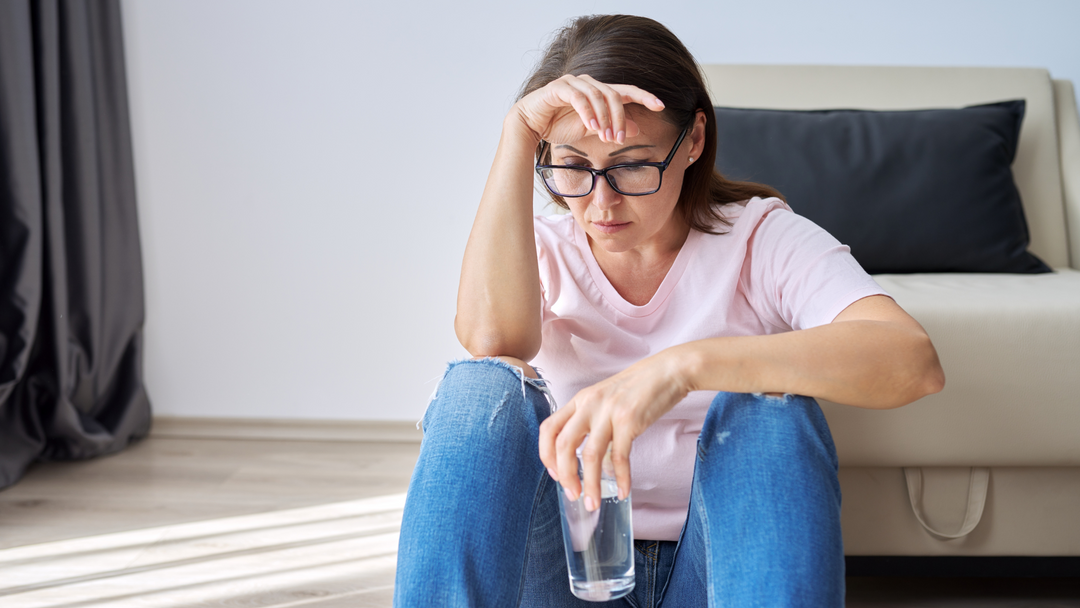What are the most common causes of a heavy period?
Last week we blogged about what a 'normal' period looks like - how many days it lasts, how much flow there is, and how many period products you'll need for a normal period cycle. But what about when your period is heavier than normal?
A heavy period is when you bleed more than 80 mls during your cycle.
Over a normal period of 3-7 days, a heavy period would mean you would use 14-18 regular tampons or pads, 6-9 super tampons or pads, or more than 7 pairs of AWWA period underwear, over your whole cycle.
If you are experiencing heavier than normal bleeding or bleeding for much longer than an average 3-7 day cycle, it is really worth seeing a health expert to check that your body is balanced and well.
A doctor or naturopath can test your hormonal levels and talk to you about any other symptoms you might be experiencing - like cramps, headaches, depression - and they can also check that your bleeding is normal menstrual flow.
Remember, every wahine is unique and periods do vary widely - but it is also important to take care of our precious bodies when there are signs that something may be out of kilter.
5 causes of heavier periods than usual
Michele spoke with period expert Lauryce Moore about what can cause a heavier flow than normal. Here are Lauryce's top five picks for why your hormones or your body may be un-balanced and producing a heavy flow.
Thyroid imbalance
Our thyroid takes in iodine and converts it to hormones that regulate the body's metabolic rate, heart and digestive function, muscle control, brain development, mood and bone health. Because NZ soils are low in iodine and people eat less iodised table salt than we used to, Kiwi women can often be low in iodine. Thyroid imbalance is also common in mums who have post partum depression. Other symptoms of thyroid imbalance are tiredness, weight gain, hair loss, depression, trouble concentrating, weakness, itchy dry skin and feeling cold.
Thyroid imbalance needs to be checked by a doctor, but there are often easy fixes, including eating the right foods and minerals, de-stressing and detoxing your body to help your hormone levels rebalance.
Perimenopause
This is the stage before 'actual' menopause - and it can last 10 years! So any woman aged 35 - 50 or so can be perimenopausal. Symptoms are what we think of as menopause symptoms - tiredness, trouble sleeping, vaginal dryness, hot flushes, mood swings... and heavy period bleeding!
Ask your naturopath or doctor to check your hormones - if they do identify a hormonal imbalance, you can work on supporting your body through improving your diet, de-stressing your lifestyle, and detoxing your daily beauty routines and your home. Hormones hate stress and chemicals, and love proteins, fats and fibres - so including these in every meal will help your body cope with hormonal fluctuation through your change of life.
Endometriosis
We all know someone living with endo, as experts estimate that as many as 1 in 5 Kiwi women suffer endometriosis. It can be mild or a major and painful impact on your life. Endometriosis is an inflammatory condition where tissue which should only form in the uterus grows outside the womb on areas like the ovaries or bowel.
Endo can cause very heavy periods, longer periods of bleeding, painful cramps, back pain and much more. If you think you may have endo, please see your doctor. Because it is an inflammatory condition it can help to switch to an anti-inflammatory diet, but expert medical advice is important. Make yourself a priority.
Teenage cycles
If you have (or your daughter has) heavy or slightly irregular bleeding - it's ok!
Teenage cycles are normally a little erratic until your menstrual cycle 'matures' and becomes more regular. Give your body time to get the hang of this new trick - it's kind of a biggie becoming a creature who can create life!
A big recommendation to teens from Lauryce is not to go on the pill to 'regulate' your period. It will settle in soon enough and adding artificial hormones to the mix isn't ideal. In fact Lauryce actually got pill induced polycistic ovaries - and didn't have a normal period for a year after she stopped taking the pill.
Again, you can work to support your hormones through eating meals that contain fat, fibre, protein and minerals like magnesium; detoxing the products you use on your body and in your home - and working on ways to de-stress.
Lifestyle .... we mean stress!
Stresses on your body, your mind and your body's chemical make up will all impact your hormones, and can send them out of balance - leading to all sorts of effects, including heavy periods or irregular bleeding.
The great news is there are myriad ways to support your body's hormonal balance - from the food you're eating, to the products you put on your skin, the cleaning chemicals in your home, and eliminating plastic food storage and gladwrap along with other sources of excess estrogen.
It is always the perfect time to re-assess your lifestyle and mindset and look for better ways to work, eat, play and rest!
You may know you need to rebalance your work-life situation, or want to try meditation and calming rituals. You probably need more self-care and 'you time' (show me a woman who doesn't!) And there are so many wonderful changes you can make on a daily basis, from eating more whole foods, switching to all natural products, and even trying calming herbs like Ashwagandha which is an adaptogen that helps balance anxiety and mood swings.
We hope that reading this article has given you some ideas on why your periods may be heavier than usual, and where you can start to find ways to rebalance your body's cycle.
With aroha, from us to you.





Leave a comment